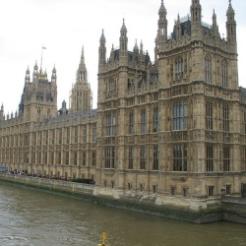MPs voted in favour of the lobbying bill, following its third reading in the House of Commons last night, with a majority of 44, despite calls from opposition MPs and voluntary sector organisations for more consultation.
Tom Brake, Liberal Democrat MP for Carshalton and Wallington, defended the bill and argued that the amendments tabled by the government meet the concerns raised by charities.
He said: “In all the conversations that I have had with charities, they have gone to great extremes to underline the fact that as charities, they do not campaign for electoral success of a party or candidate because the Charity Commission would stop their charitable status.”
When questioned about the type of campaigns charities would be able to carry out, he gave a number of examples, including the RSPCA anti-badger cull campaign, explaining that: “If the RSPCA ran a campaign in a number of constituencies saying, ‘We are against the badger cull’, and subsequently a candidate announced that they were also against it, provided that the RSPCA did not say, ‘Candidate A is backing our campaign—vote for candidate A’, it would be able to proceed with campaigning.”
Labour concerns
Brake added that it “would be foolish of me to say that charities are not concerned” but that the government would continue to engage with NCVO on the issue.
Stephen Twigg, Labour MP for West Derby, was not convinced by Brake’s arguments, and told Parliament: “I have heard very little today to change the view I held before the debate started that part two of the bill is little more than a gag on charities and campaigners.”
Wayne David, Labour MP for Caerphilly and president of the Council for Wales of Voluntary Youth Services, said: “There is a consensus among most voluntary organisations that the proposals are not sufficient and arguably create further complications, which underlines the point we have made consistently: this is the wrong way to approach this kind of bill.”
Twigg urged the government “to go back to the drawing board and work on a cross-party basis with the Select Committees and the voluntary sector”.
Acevo’s chief executive, Sir Stephen Bubb described last night’s events as “a great disappointment”, but added: “Civil society will work with what he have, and help the Lords to write a bill that is fit for purpose.”
The Civil Society Commission was set up in response to the lobbying bill to investigate the impact of the proposals.
Yesterday NCVO’s chief executive Stuart Etherington wrote to MPs reminding them that NCVO believed that he amendments to the bill did not go far enough to protect charities.
An amendment tabled by the Labour MP Graham Allen, who chairs the Constitutional Reform Select Committee, which would have excluded charities by specifying that the “primary purpose” of the campaigning activity was defeated by 261 votes to 298.
The bill has moved to the House of Lords, where it had its first reading last night. The second reading in the Lords is scheduled for 22 October.









